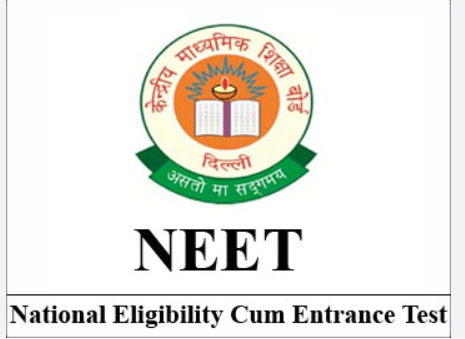National Eligibility-cum-Entrance Test
The National Eligibility cum Entrance Test (NEET) is a national-level medical entrance examination conducted in India for students seeking admission to undergraduate medical courses (MBBS), dental courses (BDS), and postgraduate medical courses (MD/MS) in government and private medical colleges across the country. The exam is conducted by the National Testing Agency (NTA) under the Ministry of Education, Government of India.
History
The concept of a common entrance test for medical colleges in India was first proposed in 2009 by the Medical Council of India (MCI). However, it was only in 2013 that the NEET was introduced for the first time. The exam faced several legal challenges and was eventually suspended in 2014. In 2016, the Supreme Court of India passed a judgment making NEET mandatory for all medical and dental college admissions in the country.
Eligibility Criteria
To be eligible to appear for NEET, a candidate must:
- Be an Indian citizen or a Person of Indian Origin (PIO)
- Have completed 17 years of age as on 31st December of the year of admission
- Have passed the 10+2 examination or its equivalent with Physics, Chemistry, Biology/Biotechnology, and English as core subjects
- Have obtained a minimum of 50% marks (40% for SC/ST/OBC
Exam Pattern and Syllabus
NEET is a pen-and-paper based test conducted in a single session. The exam consists of 180 multiple-choice questions (MCQs) from Physics, Chemistry, and Biology (Botany and Zoology). Each correct answer is awarded 4 marks, while 1 mark is deducted for each incorrect answer. The syllabus for NEET is based on the 10+2 curriculum of the CBSE, NCERT, and other state boards.
Preparation Tips
To crack NEET, candidates must follow a systematic and disciplined approach towards their preparation. Some of the key tips for NEET preparation include:
- Start early and follow a well-planned study schedule
- Focus on understanding the concepts rather than rote learning
- Practice regularly with mock tests and previous year question papers
- Revise and review the syllabus periodically
- Stay motivated and manage stress through regular breaks and relaxation techniques
Counselling and Seat Allocation
After the declaration of NEET results, qualified candidates are eligible to participate in the counselling process for seat allocation. The counselling process is conducted by the Medical Counselling Committee (MCC) for 15% All India Quota (AIQ) seats and by the respective state authorities for 85% state quota seats. Candidates are allocated seats based on their NEET rank, preferences, and the availability of seats in the participating colleges.
Controversies and Challenges
NEET has been a subject of several controversies and challenges since its introduction. Some of the key issues include:
- Language barrier: The exam is conducted only in English and Hindi, which puts students from regional language backgrounds at a disadvantage
- Coaching culture: The high-stakes nature of the exam has led to the proliferation of expensive coaching centres, which many students cannot afford
- Rural-urban divide: Students from rural and disadvantaged backgrounds often lack access to quality education and resources, which affects their performance in the exam
- Medical education in regional languages: Several states, particularly Tamil Nadu, have been opposing NEET on the grounds that it undermines the state’s autonomy in medical education and the efforts to promote medical education in regional languages
Despite these challenges, NEET remains the most competitive and sought-after medical entrance examination in India, with over 1.5 million candidates appearing for the exam every year.
Impact of COVID-19
The COVID-19 pandemic has had a significant impact on the conduct of NEET in recent years. In 2020, the exam was postponed multiple times due to the nationwide lockdown and was eventually conducted in September with strict safety protocols in place. In 2021, the exam was conducted in a similar manner, with COVID-19 guidelines being followed at all exam centres.


